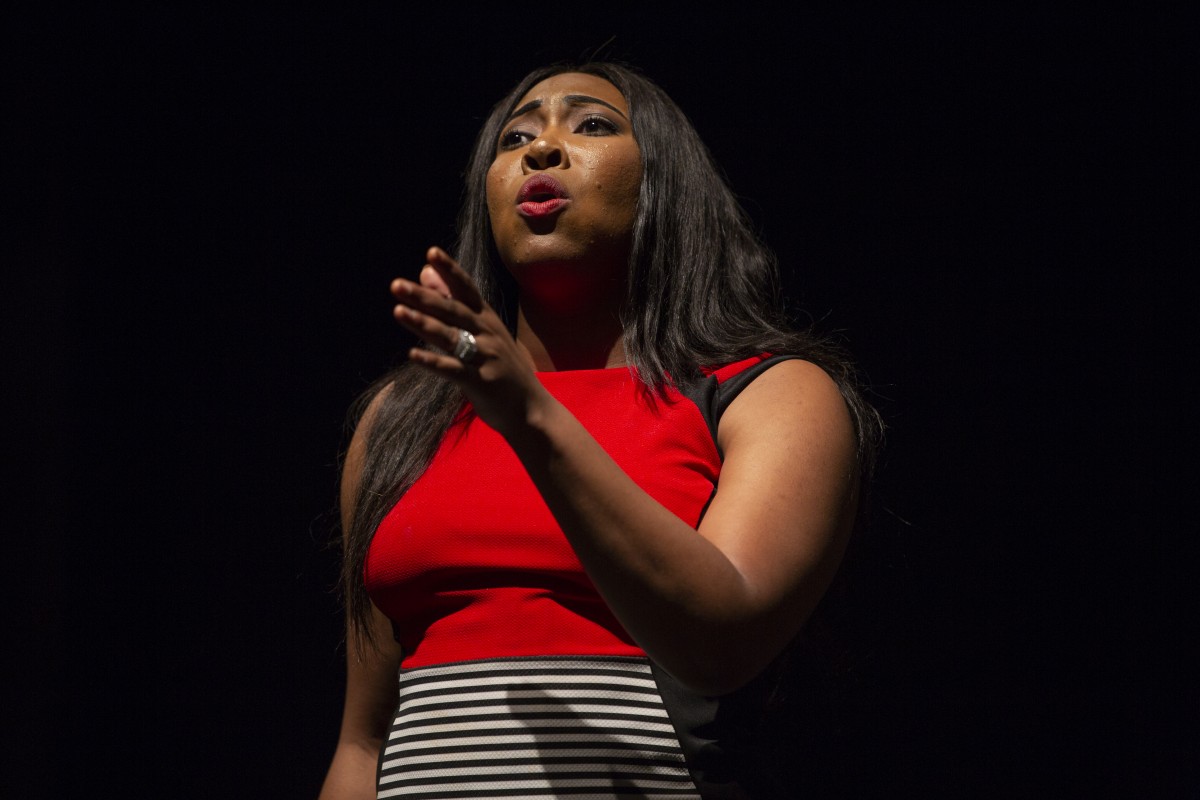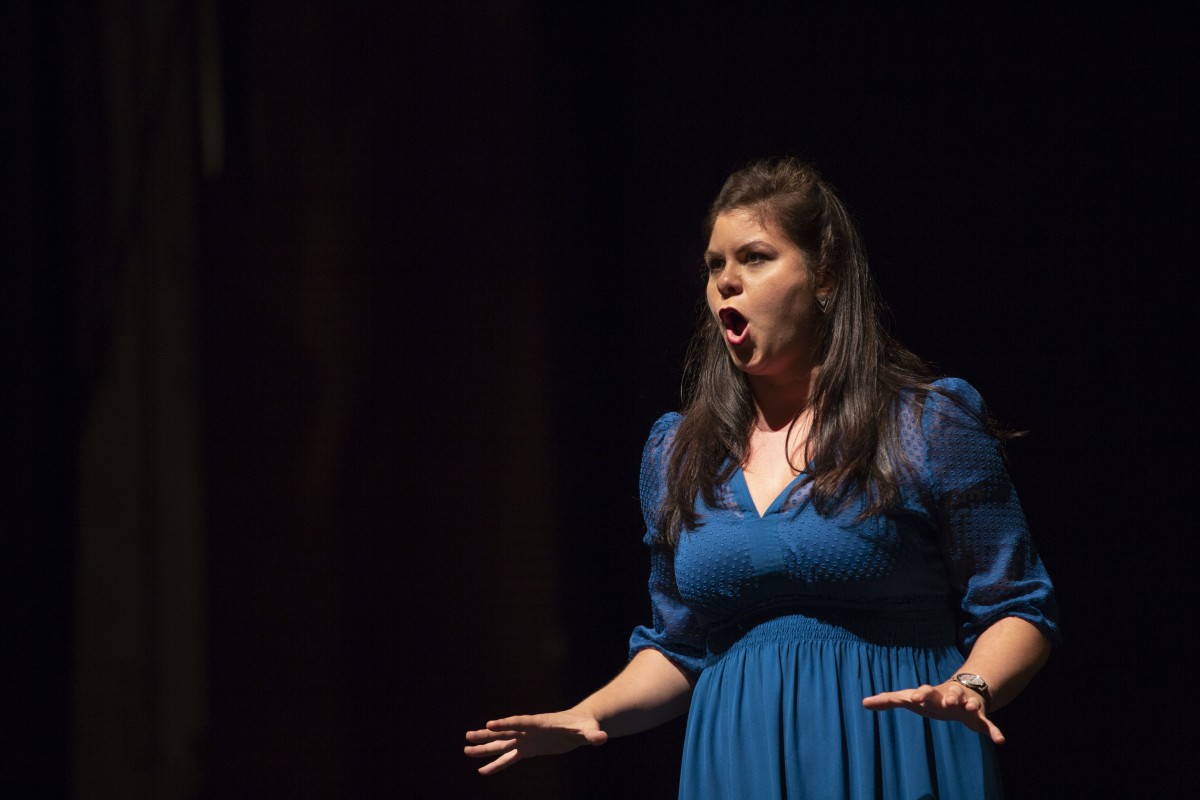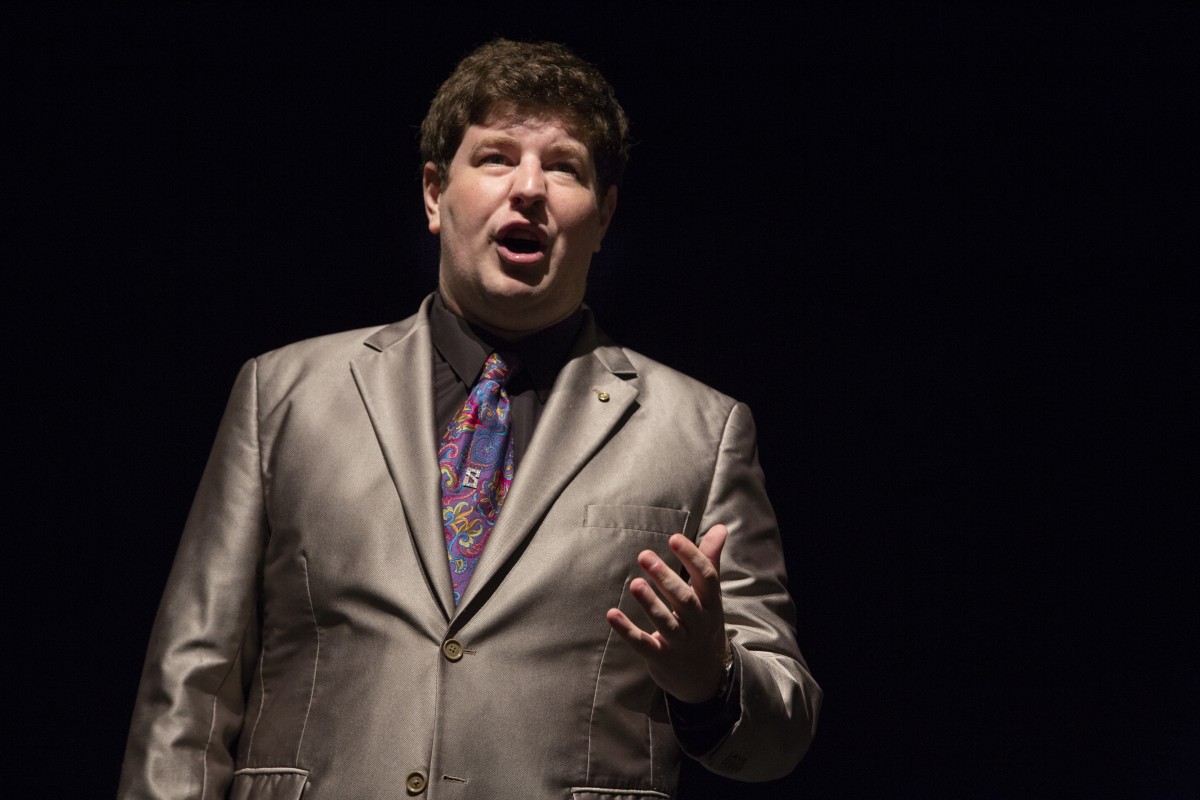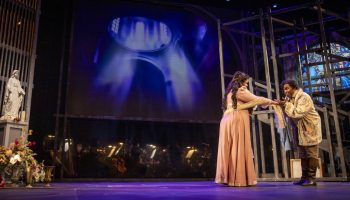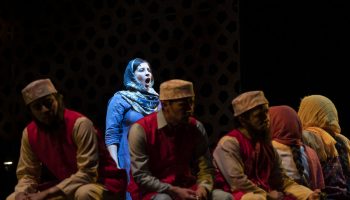For the first Afternoon of Song, three of Chautauqua Opera Company’s Young Artists will tackle social and historical problems through the power of art song.
“Right now, we’re dealing with a lot of strife in the world and (in) this recital … we’ve put together a program that speaks to overcoming obstacles,” said mezzo-soprano Quinn Middleman. “I think that is an interesting way to set the tone for the summer and to set the tone for such an intelligent and intellectually curious group of people that are at Chautauqua.”
At 3:15 p.m. Thursday, June 28, in the Atheneum Hotel Parlor, the Young Artists will perform self-chosen works with the hope to spark conversation about varying topics. Coach Emily Jarrell Urbanek will accompany the artists, and soprano Kayla White will perform a world premiere piece by Composer-in-Residence George Lam.
White’s pieces focus on the experiences of African-Americans, including the new work from Lam, “Sissieretta Jones, Carnegie Hall, 1902 , O patria mia.” Lam composed the piece from Tyehimba Jess’ Pulitzer Prize-winning Olio, one of the Chautauqua Literary and Scientific Circle’s Week One selections. Sissieretta Jones, whose story is featured in Olio, was an American soprano who was the first African-American to perform in Carnegie Hall in New York City. At the time of her performance, segregation prevented black people from sitting next to white people in public spaces, let alone allowing them to perform on one of the most prestigious stages in the world.
White is most looking forward to debuting the powerful piece, she said.
“I’m premiering this piece and showing this pain and showing how us African-Americans, especially women, have overcome this to being able to perform in opera houses and in stadiums all over the world,” White said.
The rest of White’s portion of the recital is all within her repertoire, and some of the pieces focus on the joy found in African-American history. White will perform a piece by Lena McLin, one of her teachers. McLin takes spirituals and makes them art songs, White said.
White will conclude with “Ride On, King Jesus,” which has sentimental value to her.
“I’ve been through a lot in my life, a lot of struggles, and I still go through things, but what has helped me is my spirituality,” White said. “I believe in God. I feel like if I didn’t have him, I don’t know where I would be. The pieces I’ve chose and the piece that was written, it speaks to me because I’ve been there. I’ve been through the struggles and I’ve overcome.”
Middleman’s pieces are all written by composers who have experienced hardships. The first set of her chosen art songs was composed by women, who are not often given the same recognition as men in opera.
The first two pieces Middleman chose were composed by Sheila Silver with libretto from Edna St. Vincent Millay. Silver often uses texts written by women as libretto, and Millay wrote and spoke extensively about sexuality.
“That’s something I’m really passionate about: bringing women composers to a more-heard space,” Middleman said. “Even if they created music just as beautiful or even more so than their male counterparts, at the time they weren’t performed as operas.”
Middleman’s second set features all German-language composers, including Hanns Eisler, Alexander Zemlinsky and Franz Schreker, who were affected by the Holocaust.
“We don’t really know their music very much today because of the Holocaust, which is, again, a real shame because they’re such amazing pieces,” Middleman said.
When the artists first organized the recital, Middleman thought the focus might be a little too dark for the first Afternoon of Song.
“I’m really pleased that we have an audience that can go there and that is open to that kind of introspection,” she said.
Baritone Spencer Reichman is taking a different approach to the recital and has chosen pieces that have a more optimistic tone.
“Most of my arias are very angry and doom and gloom and such, so what I do is I find art songs that reflect the exact opposite, and I take the opportunity to find things that are much happier,” Reichman said.
The song Reichman is most looking forward to is a poem,
“Little Girl, Be Careful What You Say,” by Carl Sandburg set to music by Harry Wayne.
The piece is a cautionary tale about the power of words, which Reichman said is important to the current era.
“(The pieces are) speaking of the power of music, which is why I think partially we’re all here and doing these (songs) because the words have power and the music has power,” Reichman said.
Chautauqua is a great place to bring topics that aren’t often addressed to the forefront because Chautauquans can start conversations to fix the problems, White said.
“The nature of Chautauqua is about coming, learning and thinking about tough issues,” Reichman said. “It’s good to raise these issues because people are going to think about them and talk about them and hopefully change the world for the better.”


